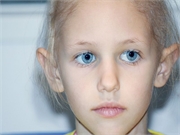Medical and ethical considerations are discussed, including in cases of conflict between parent, child
TUESDAY, Feb. 18, 2020 (HealthDay News) — Medical and ethical considerations of fertility preservation in children with cancer are addressed in a clinical report from the American Academy of Pediatrics, published online Feb. 18 in Pediatrics.
Sigal Klipstein, M.D., from the Pritzker School of Medicine at the University of Chicago, and colleagues reviewed the medical aspects and ethical considerations of considering fertility preservation in pediatric and adolescent patients with cancer.
According to the report, physicians providing cancer treatment to children should be able to counsel patients and their families regarding the risk for infertility and options for fertility preservation. Patients and their families should be offered timely referral to centers and providers offering these options. Physicians providing cancer treatment should be aware that in prepubertal children, fertility preservation options are limited, and most treatments in this age group are currently experimental. Physicians should be clear about whether the fertility preservation treatments have proven efficacy or are experimental in nature. Whenever possible, cryopreservation of sperm and oocytes should be offered for postpubertal patients. Embryo cryopreservation should not be considered in children given the success achieved with cryopreservation of oocytes. Cryopreservation of ovarian tissue and testicular tissue is still considered experimental and should only be offered in the setting of a research protocol.
Parents should take into account a child’s assent in considering actions to preserve a child’s fertility. Attempts should be made to support an open future for the child, while respecting the family’s wishes when conflicts arise between the parent and child regarding fertility preservation.
Copyright © 2020 HealthDay. All rights reserved.








